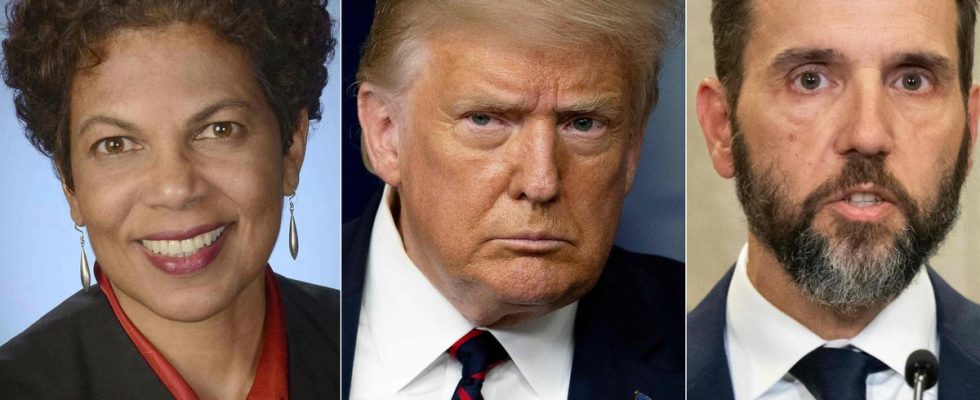This is a temporary victory for Donald Trump. The Supreme Court of the United States refused to urgently study the question of possible immunity of the former American president, rejecting the appeal of federal prosecutor Jack Smith. This means that the appeal process will take its course in a Washington court. And if the case should logically return to the Supreme Court, this game of legal ping-pong risks postponing Donald Trump’s trial for electoral interference, supposed to begin on March 4, with a snowball effect for other lawsuits.
The Supreme Court did not justify its decision. In one line, she indicated that the appeal was rejected. It was a poker move by the prosecutor aimed at preventing Donald Trump and his lawyers from playing for time.
The Washington appeals court is scheduled to hear arguments from both parties on Jan. 9, and is expected to issue its decision soon after. According to experts, the case should therefore return to the Supreme Court in February. If the court agrees to take up the case, Jack Smith and Donald Trump’s lawyers will be able to present their arguments again, which would at least postpone the trial by several weeks, or even a few months, with the current session of the court. Course which ends in June.
Judicial traffic jam
The nine judges will be very busy: while Donald Trump was declared ineligible in Colorado by the local courts, the Supreme Court should also be called upon to decide – once the former president has appealed.
In addition to the trial in Washington scheduled for March, Donald Trump must also be tried by federal courts in Florida in the classified documents affair in May. He also faces prosecution in New York in the Stormy Daniels case, and in Georgia, where he was charged with conspiring to overturn the outcome of the 2020 presidential election and faces decades in prison.
Favorite for the Republican nomination, Donald Trump hopes to succeed in having all his trials postponed until after the presidential election in November 2024, which is shaping up to be a revenge against Joe Biden. If elected, the Republican could have the federal prosecutions quashed, or self-pardon in the event of a prior conviction. However, he would remain under threat of a prison sentence in Georgia, because a president has no power over the justice system of a state.

